Maxcraft partnered with the team at Pacific Rim Aviation Academy to transform one of their Cessna 172s used for pilot training from ab-initio, to advanced commercial and IFR this aircraft is ready for anything. By removing the old school gyroscopic instruments and replacing them with solid state Garmin electronic flight indicators, this 172 will be able undergo the many maneuvers student pilots put aircraft through which cause wear on gyro instruments but don’t even make solid state instruments blink.
Flight School 172 Gets Modern Upgrades
1977 Cessna 172N
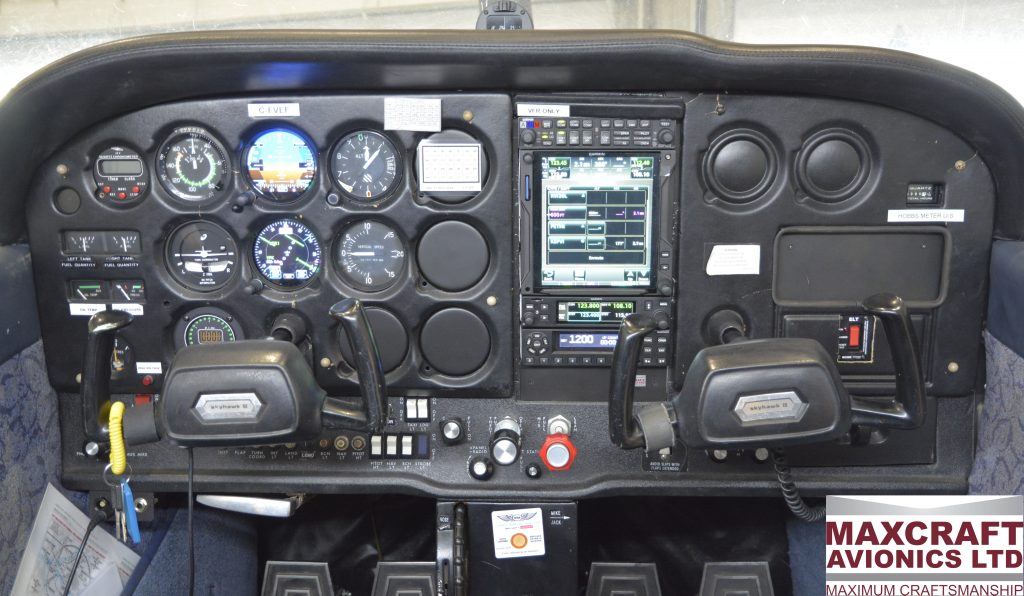
Aircraft & Owner:
The Cessna 172 is one of the most recognizable airplanes in the general aviation world. If you ask any pilot, almost everyone of them have at some point flown one, and its many pilot’s first aircraft when they begin flight training. The mid to late 70s model 172s have become more and more popular with flight training units due to their large number on the market, and the overall savings when compared to a newer model Skyhawk. Pacific Rim Aviation Academy is one of the flight schools located at Pitt Meadows airport offering everything from initial pilot training, to more advanced commercial, and instrument training. They aim to train the next generation of pilots with new generation aircraft and this 172 exemplifies this ideology. This isn’t the first time we’ve teamed up with Pacific Rim, back in 2015 we completed a G500 primary flight display install in one of their other 172s. You can read about that project here.
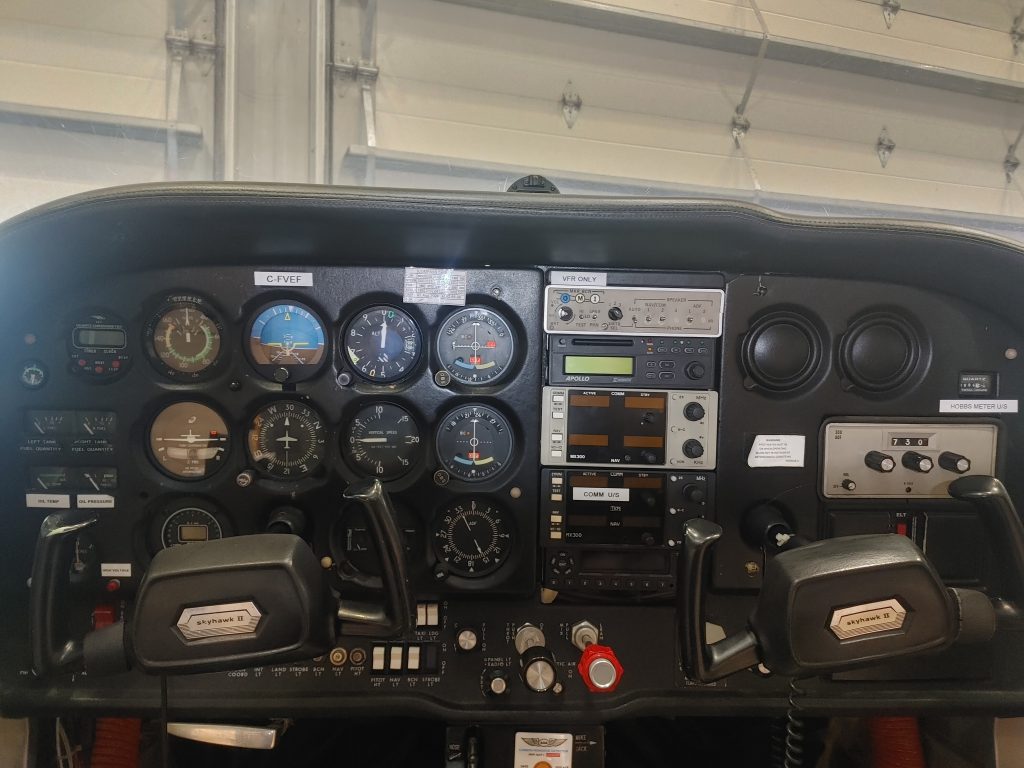
Need:
This particular C172 was the most recent addition to Pacific Rim’s fleet. Coming to the fleet with about what you would expect for avionics in this vintage of an airframe, Pacific Rim wanted to bring it to the modern day, and future proof the airframe for decades to come. IFR capabilities was another must for this aircraft.
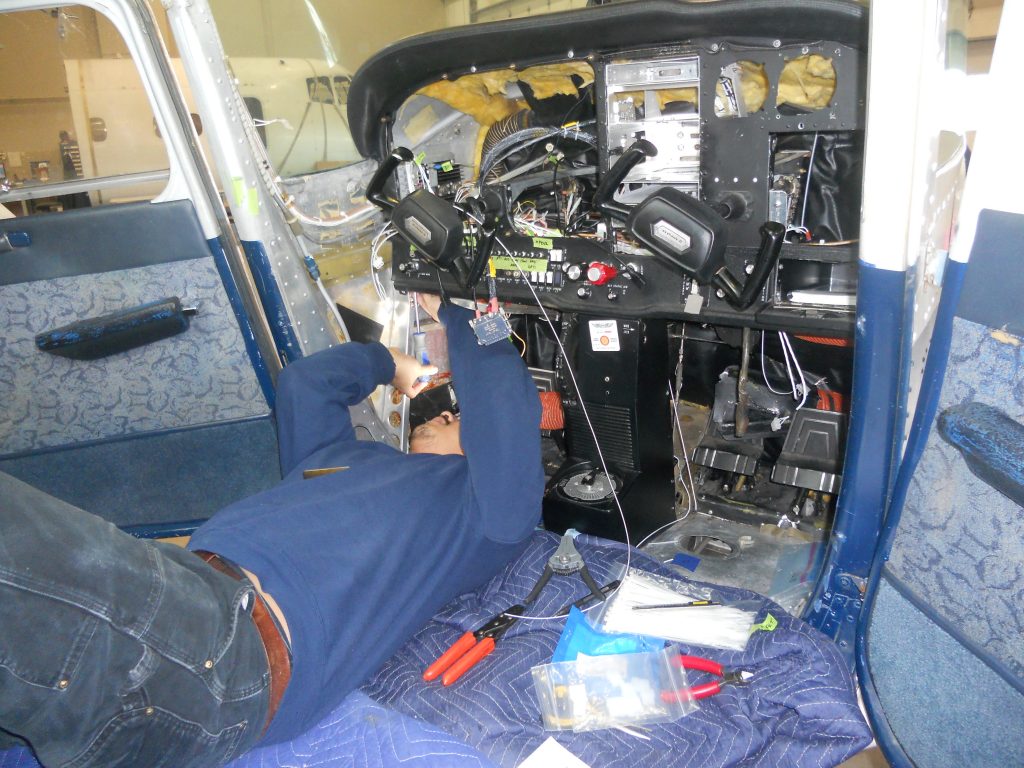
While downtime of a privately owned 172 can mean inconvenience for the owner, or a missed trip, with a flight school a single aircraft being down can cause a massive ripple effect which results in students not being able to fly, instructors having to be on unscheduled standby, and lost revenue for the flight school. With legacy instruments and gyros becoming harder and harder to repair, the length of downtime is increasing proportionally. Combined with the harsh environment gyros are exposed to in a training environment (Spin training is particularly hard on gyroscopic instruments, and spin training is a requirement to obtain a PPL in Canada). Solid state flight instruments are not effected in the same way when exposed to these conditions, and the reliability they bring with them is unmatched.
NEW EQUIPMENT LIST
| GI 275 PFD | Electronic Flight Instrument (Garmin) |
| GI 275 HSI | Electronic Horizontal Situation Indicator (Garmin) |
| GTN 750Xi | Touchscreen Flight Navigator and Multifunction Display (Garmin) |
| FlightStream 510 | Wireless Cockpit Connectivity (Garmin) |
| GA 35 | GPS Antenna (Garmin) |
| GTP 59 | Outside Air Temperature Probe (Garmin) |
| GMU 11 | Magnetometer (Garmin) |
| GNC 215 | VHF Navigation and Communications Transceiver (Garmin) |
| GMA 340 | Digital Audio Panel (Garmin) |
| AV-10 | VHF Comm Antenna (Rami) |
| CI-105 | Transponder Antenna (Comant) |

Maxcraft Solution:
The Garmin GI 275 is an impressive touch screen electronic flight instrument. The two indicators will provide both an attitude indicator including instrument consolidation to display all the essential readouts including attitude, altitude, airspeed, and heading all on one screen. The second GI 275 will be configured as a Horizontal Situation Indicator (HSI). When flying in instrument meteorological conditions (IMC) this second GI 275 will provide important navigation information without requiring the pilot to look outside of their primary field of view. In the event of an issue with the primary GI 275, the second will automatically fall back into attitude mode.
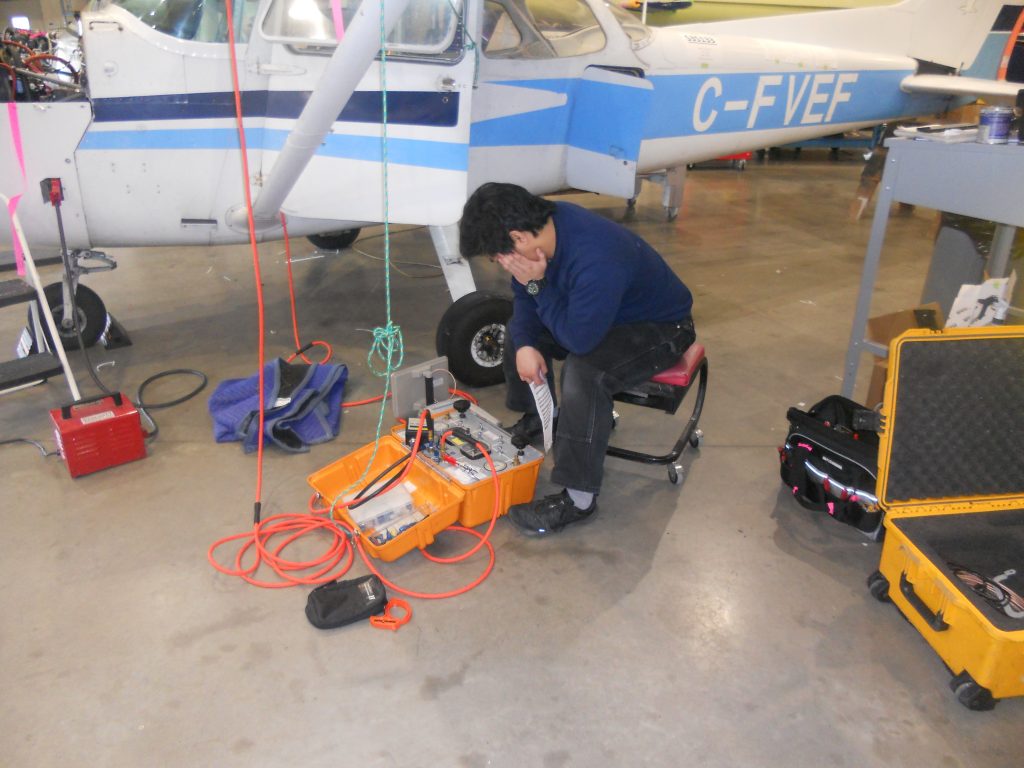
Both GI 275s integrate seamlessly with the GTN 750Xi. The GTN 750Xi is a large 6.9” touchscreen display providing a wide variety of features. Acting as the primary GPS, navigation receiver, VHF communications transceiver, and a multifunction display the GTN 750Xi’s easy to navigate menu system makes any piece of information just a few touches away. The touchscreen interface also makes it easy to input flight plans, whether VFR or IFR, into the GPS.
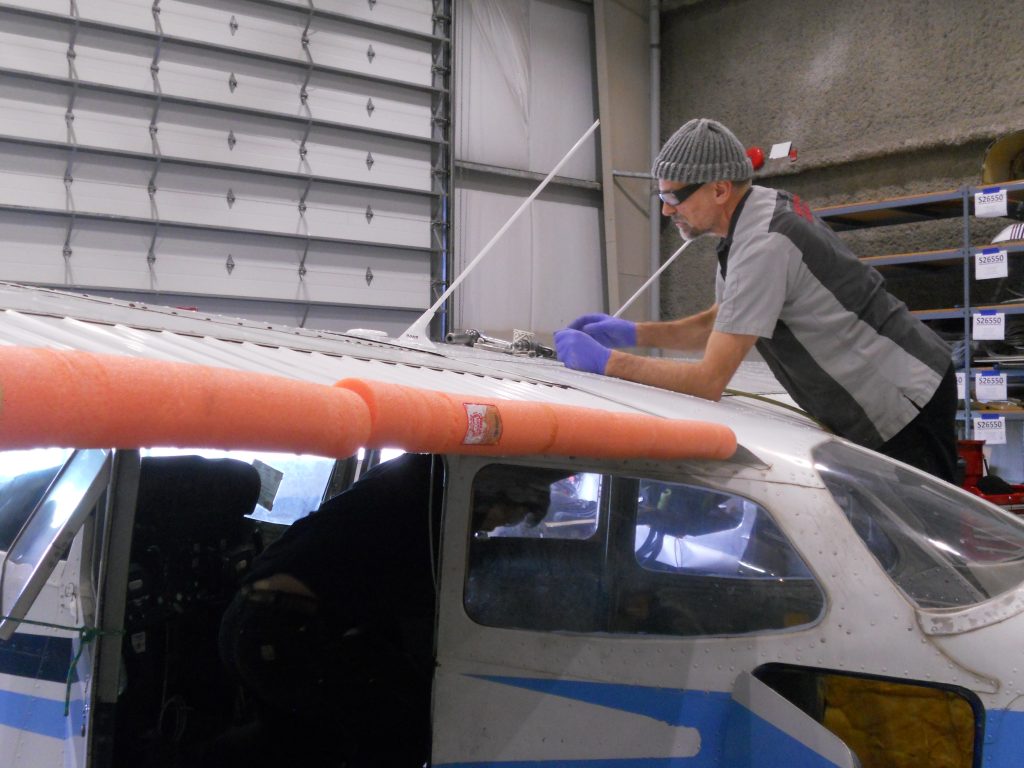
With many flight school students starting to fly with electronic flight bags (EFBs), typically in the form of an iPad running ForeFlight or Garmin Pilot, adding the FlightStream 510 to the GTN 750Xi was a must. The FlightStream 510 will allow pilots to seamlessly, and wirelessly transfer flight plan routes to the GPS navigator without needing to manually enter each and every waypoint. The pilot will simply touch a button on their iPad, and the GTN 750Xi will ask them if they want to activate the sent flight plan. The GTN 750Xi also enables Garmin’s Database Concierge, which likely won’t be used by student pilots, it will allow flight school personnel to easily and wirelessly update the databases within the GTN 750Xi to maintain IFR currency.
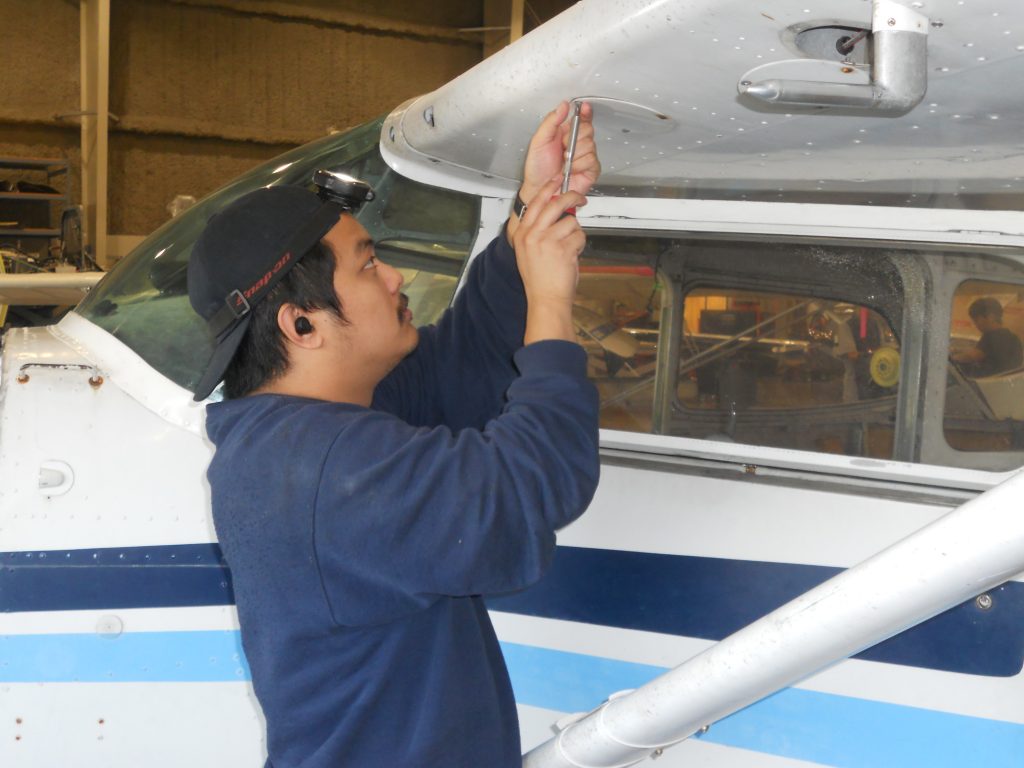
While the GTN 750Xi is one of the most reliable navigators on the market today, one of the main principles of IFR flying is redundancy. The Garmin GNC 215 is a full featured modern VHF navigator and communicator. Familiar to almost any pilot, the easy to use interface allows the tuning of VHF Omni Range (VOR) navigation aids, as well as enabling instrument landing system (ILS) approaches with localizer and glideslope approach. The pilot can easily switch between the two navigators using the touchscreen on the GI 275. The GNC 215’s communication features are also a huge tool for cockpit management. Acting as the secondary comm to the GTN 750Xi, many will use this second radio to either monitor secondary frequencies, tune in ATIS stations when inbound to an airport, and of course this will also continue to function in the unlikely scenario that the primary radio on the GTN 750Xi fails.
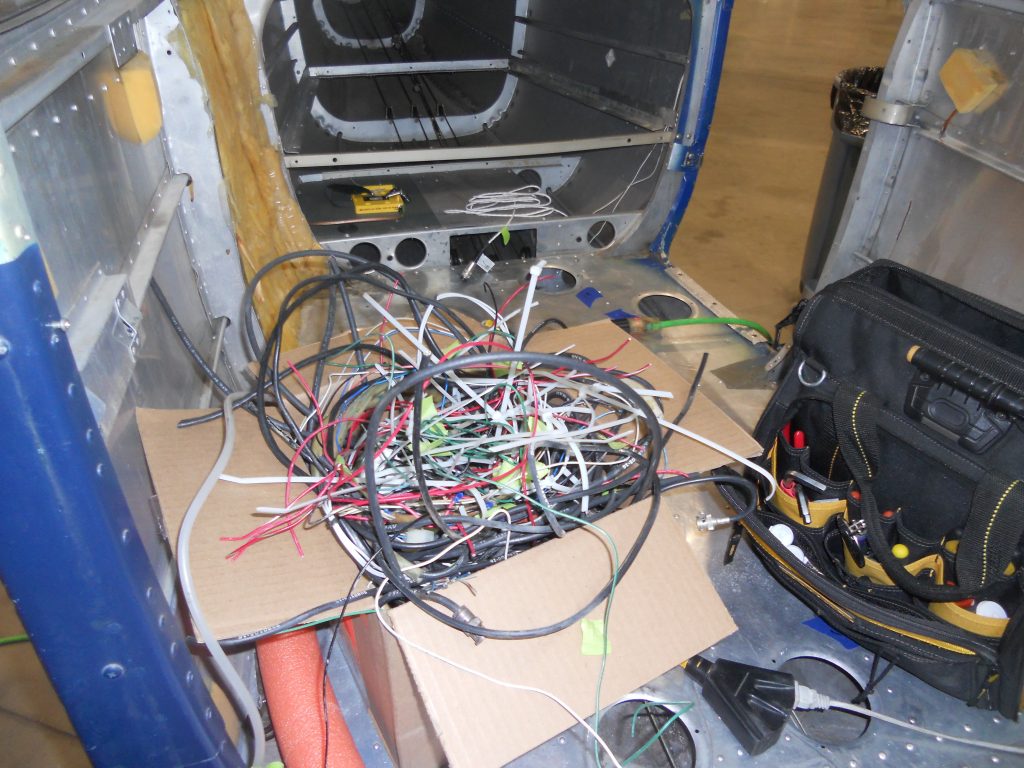
“Pacific Rim Aviation Academy, both the flight training department and maintenance department, would like to express our appreciation for the recent avionic upgrade of our fleet aircraft. From initial consultation, finding solutions to upgrade old components and adding new ones to in-progress weekly updates and post-installation testing, Maxcraft showed us a high level of customer service, dedication to perfection, and leading professionalism in the avionics industry. The finished product amazed us, from school instructors to all student pilots. This upgrade elevates our fleet and transforms pilots’ flying and cockpit experience. Maxcraft’s team, from start to finish, made the upgrade project seamless and enjoyable. They managed this project like it was their aircraft; thoughtful recommendations not only helped us to avoid extra downtime, but also made it efficient for both parties. A big thank you to the entire team at Maxcraft!”Wayne
Pacific Rim Aviation Academy


